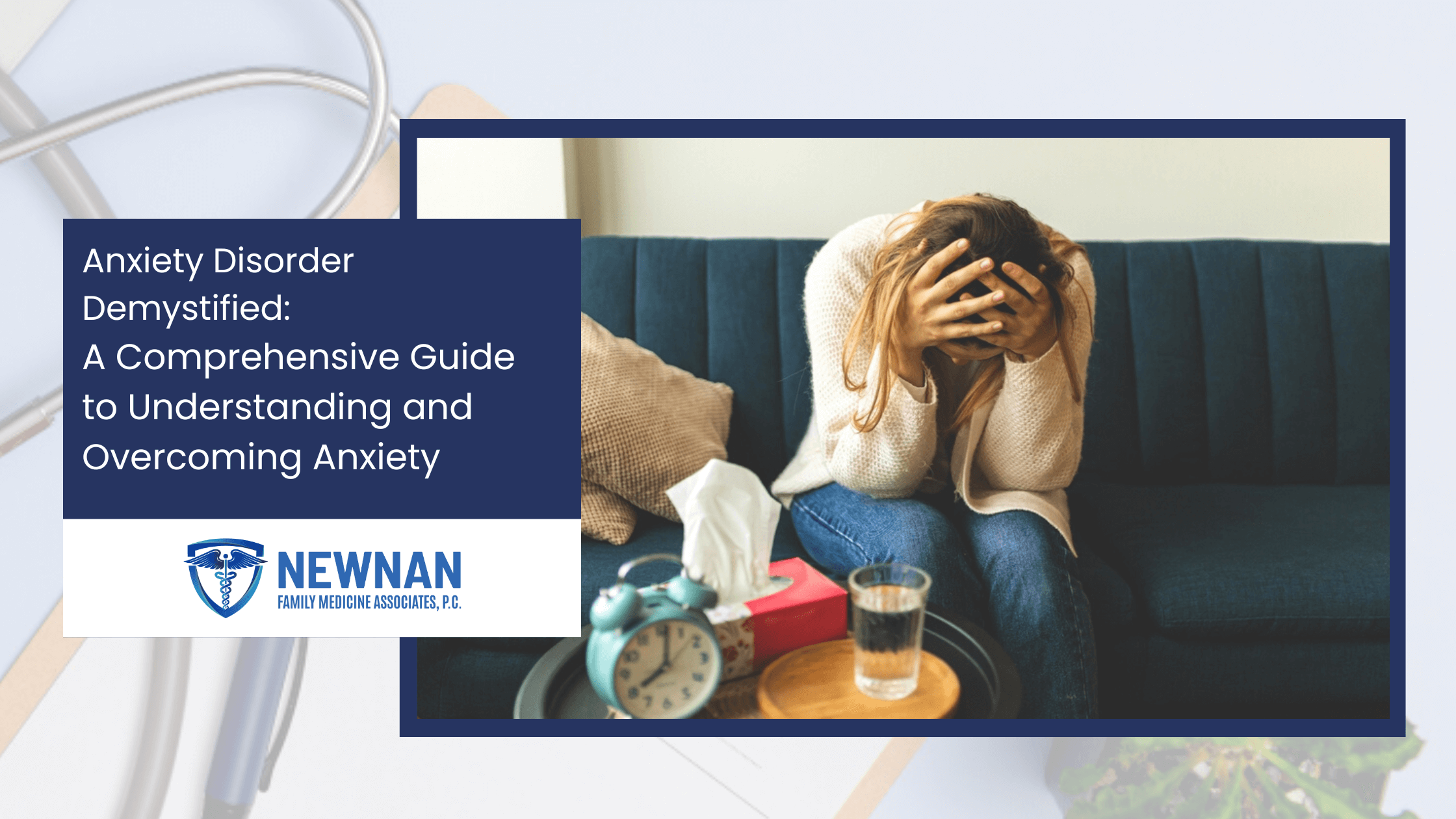Anxiety disorders affect millions of people worldwide. 40 million people in the US alone are suffering from several anxiety disorders. It can have a severe impact on daily life, relationships, and overall well-being.
Let's continue reading to understand anxiety orders, how to overcome them, and the effective treatment methods.
Common Signs of Anxiety
Anxiety disorders manifest in various ways, and it's essential to recognize the common signs. These may include:
- Excessive worrying
- Cold or sweaty hands
- Restlessness and irritability
- Rapid heartbeat
- Trembling/ nausea
- Difficulty concentrating
- Headaches
- Sleep disturbances
- Muscle tension
- Gastrointestinal problems
It's crucial to understand that anxiety disorders go beyond everyday stress and can significantly impact one's quality of life. If any of these signs appear consistently and to a debilitating extent, seeking professional help is recommended.
Different Types of Anxiety Disorders
The different types of anxiety disorders are as follows:
- Generalized Anxiety Disorder (GAD) is characterized by persistent and excessive worry about everyday situations.
- Panic Disorder involves recurring panic attacks, often accompanied by a fear of having future attacks.
- Social Anxiety Disorder centers around an intense fear of social situations and judgment.
- Separation Anxiety mainly affects children who experience intense fear that their parents might not return to them.
- Other types include specific phobias (such as Agoraphobia), Obsessive-Compulsive Disorder (OCD), and Post-Traumatic Stress Disorder (PTSD).
Understanding the Various Anxiety Stages
There are several stages of anxiety, ranging from mild to severe. In the initial stages, individuals can witness heightened awareness and alertness, also called the fight-or-flight response.
In the intensified stages, individuals may face difficulty in daily activities as the physical and emotional symptoms increase. Some individuals may also witness a panic attack with overwhelming fear, chest pain, shortness of breath, and a sense of impending doom.
Causes & Triggers of Anxiety Disorders
Several factors can contribute to anxiety development. They are:
- Biological factors, such as genetics and brain chemistry, may play a role.
- Environmental factors, including traumatic events, chronic stress, and substance abuse, can also contribute to the onset of anxiety disorders.
- Alcohol/Substance abuse, typically used to hide anxiety, often tends to worsen the condition.
- Severe illness or chronic health conditions often lead to overwhelming worry about the health of oneself or a loved one.
- Certain personality traits, such as being shy, and learned behaviors, such as low self-esteem, may make some individuals more anxious.
Most Effective Anxiety Treatment Options
- Effective anxiety treatment involves a combination of different treatment methods. These can be as follows:
- Cognitive-behavioral therapy (CBT) is a widely recognized approach that helps individuals identify and challenge negative thought patterns and behaviors.
- Medications, such as antidepressants, Buspirone, and beta-blockers, may be prescribed to help manage symptoms.
- Other treatment options include relaxation techniques like deep breathing and meditation and alternative therapies like acupuncture and yoga.
It's essential to consult with a qualified healthcare professional to determine the best course of treatment for your specific situation.
Conclusion
Anxiety disorders left untreated can disrupt daily functioning and cause additional distress. By recognizing the common signs, different types, and stages of anxiety, individuals can seek appropriate treatment and develop effective coping strategies. It's crucial to identify the causes and triggers of anxiety disorders and implement a comprehensive treatment plan that may include therapy, medication, and self-help techniques.
Treat Your Anxiety with Newnan Family Medicine for Effective Results
Newnan Family Medicine is committed to providing the best anxiety treatment options tailored to your condition in Newnan, GA. Book an appointment for more information on anxiety treatment options. Remember, you are not alone in this journey, and there is hope for managing anxiety and reclaiming a fulfilling life. If you or someone you know is struggling with anxiety, contact us today.
FAQs
1. How to calm anxiety?
Following these tips can help calm anxiety.
- Deep breathing exercises, such as inhaling deeply through the nose and exhaling slowly through the mouth, can activate the body's relaxation response.
- Grounding techniques, such as focusing on the senses or engaging in simple repetitive tasks, can help redirect attention away from anxious thoughts.
- Engaging in physical activity, such as walking or practicing yoga, can release tension and promote a sense of calm.
2. How do you reduce anxiety immediately?
These strategies can help reduce anxiety immediately.
- Progressive muscle relaxation involves tensing and then releasing muscle groups to promote relaxation.
- Engaging in distracting activities, such as solving puzzles or listening to calming music, can help shift focus away from anxiety.
- Mindfulness exercises, such as observing thoughts and sensations without judgment, can bring a sense of present-moment awareness and reduce anxiety.
3. How long do anxiety attacks last?
The duration of anxiety attacks can vary from person to person and within individuals. While some anxiety attacks may last only a few minutes, others can persist for several hours.


